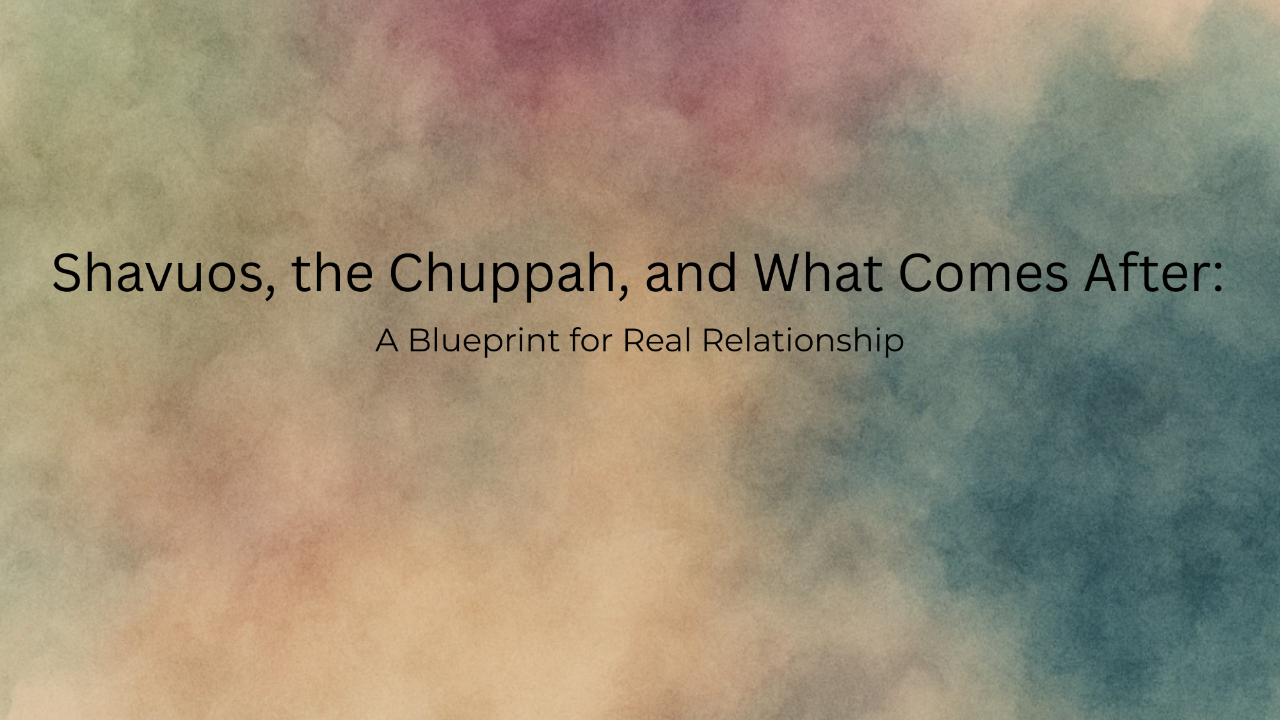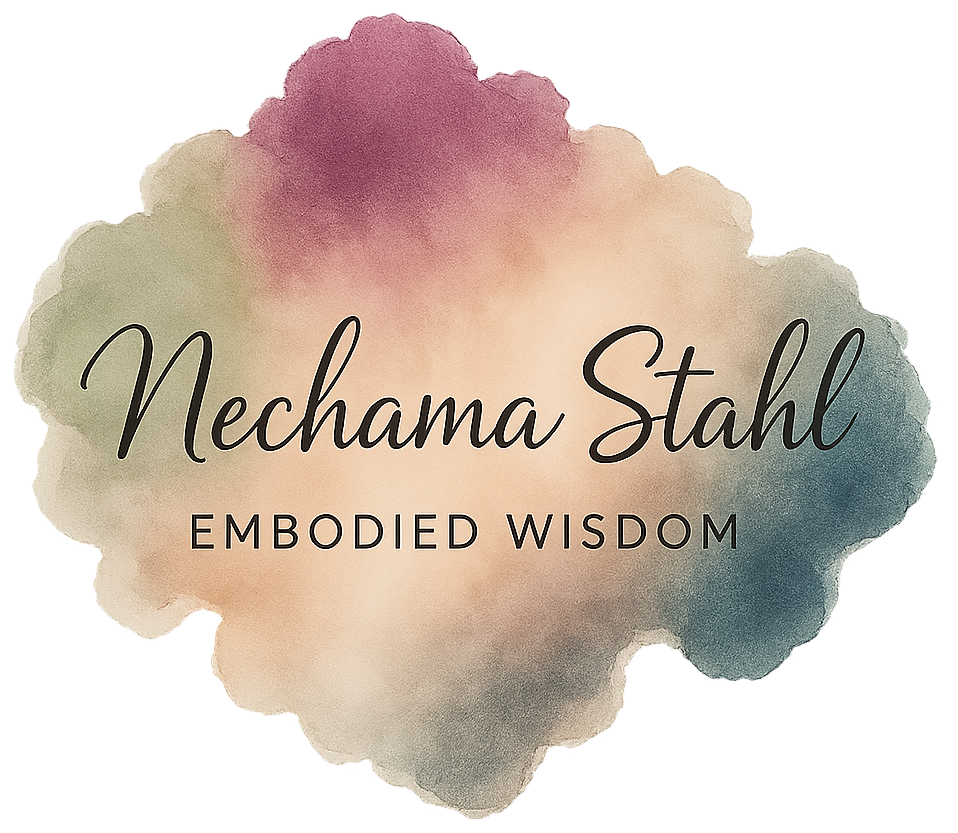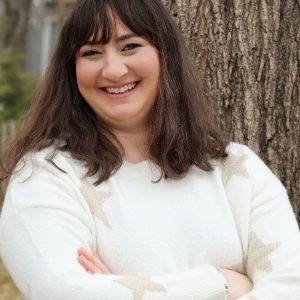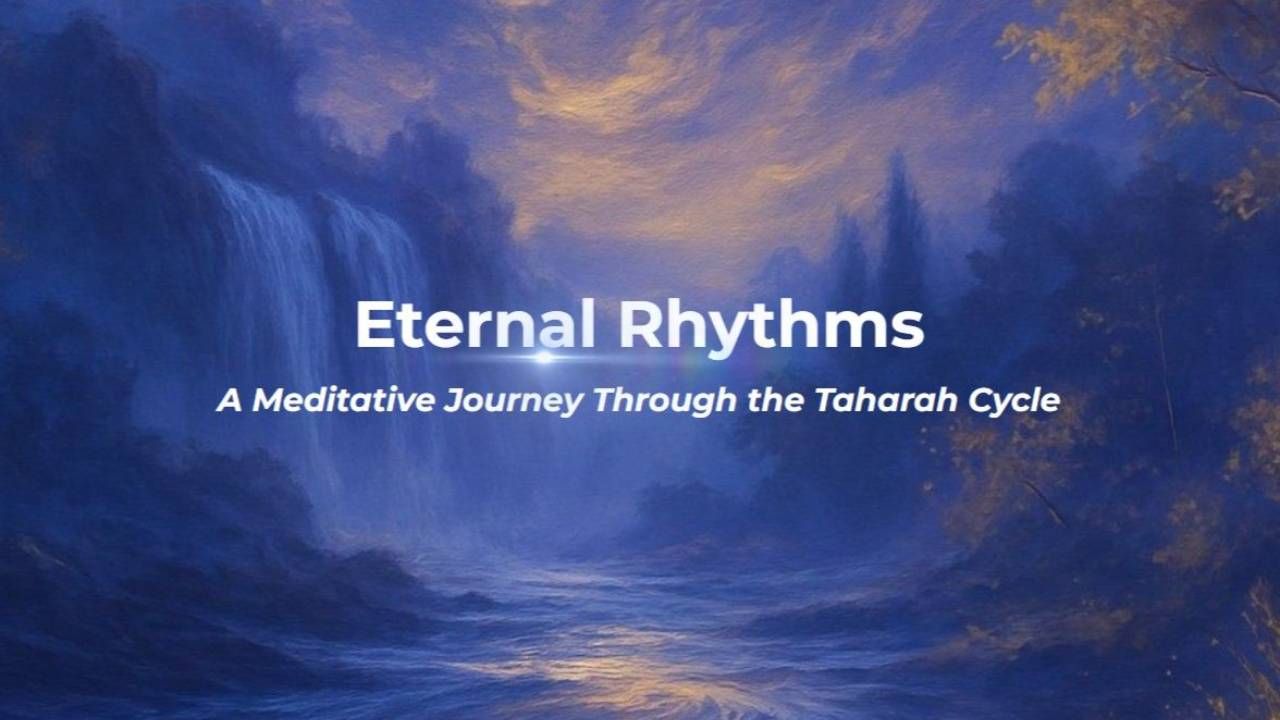
Shavuos, the Chuppah, and What Comes After: A Blueprint for Real Relationship
May 30, 2025There’s a Midrash that calls Shavuos a wedding.
Not a metaphor.
An actual wedding.
Klal Yisroel, the bride. Hashem, the groom.
A mountain held above our heads—not as a threat, but as a canopy.
A covenant sealed in fire, breath, and word.
And every year, we return to that moment.
To the mountain.
To the question.
To the choice.
I teach brides for a living. And here’s the thing no one tells you about weddings:
The chuppah is only the beginning.
Real marriage happens in the mess.
It happens in mismatched expectations and the quiet miracles of ordinary days.
When the baby kept you up all night.
When one of you is juggling a mortgage payment, dentist bills, and a surprise visit from the plumber.
When the principal is calling and you’ve been trying to plan a date night… for a month.
Real relationship begins when the honeymoon glow fades.
When we let our guards down.
When we’re seen—and when we see ourselves in the mirror of another person.
Because real relationship—with a spouse, with the self, with G-d—isn’t about getting it right.
It’s about getting real.
A holiday that ended in disaster?
My brother-in-law recently said something that stopped me in my tracks:
On Shavuos, we celebrate a day that ended in disaster.
After the exalted experience of Ma’amad Har Sinai—after we said “yes” to Hashem—we fell. Fast.
We built an egel. An idol.
The very thing we were told not to do.
But maybe that’s the point.
The real marriage happens in the mess. And in the mess-ups.
Shavuos isn’t just about reliving revelation.
It’s a sacred rehearsal for what comes after.
Aseres Hadibros: A compass, not a checklist.
The Dibros—often called commandments—aren’t just rules.
They’re statements. Coordinates. A framework for alignment.
Let’s pause on three:
1. “I am Hashem your G-d.”
Not a demand for belief. A statement of reality.
An invitation to intimacy.
To be seen and claimed—even in tight places.
Hashem introduces Himself not as Creator, but as the One who took you out of Egypt. Personal. Relational.
5. “Honor your father and mother.”
It’s about where you come from.
And honoring that is how you honor where you’re going.
It teaches compassion—for them, for yourself, for your spouse.
It’s how we grow up without giving up.
10. “Do not covet.”
Not because desire is bad, but because comparison is corrosive.
It distracts us from the life we do have.
This is the heartbeat of alignment in marriage:
To choose presence over projection.
To want what you have—and tend to it well.
A different kind of yes.
These Dibros aren’t boxes to check.
They’re a compass that keeps pointing us home.
Maybe the invitation of Shavuos isn’t to relive the revelation,
But to receive it again.
Deeper. More honestly.
Not because we’re the same as last year—
But because we’re not.
We’ve lived.
We’ve fractured.
We’ve healed.
And somehow, through the sacred rhythm of distance and return (Taharas Hamishpacha, anyone?), we find ourselves back here.
Beneath the mountain.
Beneath the chuppah.
Being asked again:
Will you marry Me?
All we have to do is say yes.
Even if it’s whispered. Even if it’s messy.
Even if it sounds like: “I want to want to.”
And maybe that’s why we celebrate a day that ended in disaster—
Because the fall was inevitable.
But the return?
That was our choice.
Make it your own.
Here’s the tricky part: many of us entered this relationship from a one-size-fits-all place.
We were told what to do—but never shown how to make it our own.
And the truth is, no real relationship can be commercial.
It has to be personal.
Rooted in you.
Each of us holds a unique light.
Which means each of us holds a unique bond with Hashem.
Even if a system taught us the what,
How we connect is something only we can choose.
So wherever you are in that relationship—through the mishaps, mess-ups, and questions—
Can you still say yes?
If that sounds like your kind of journey, stay tuned.




